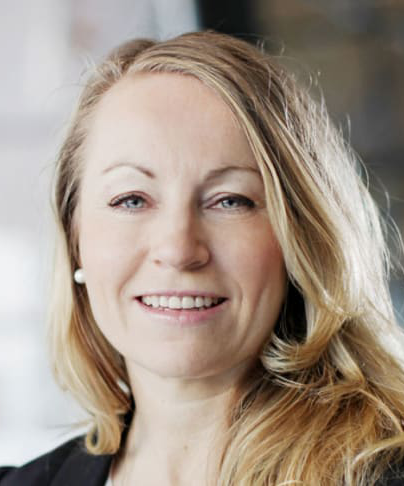Smart villages: The SVIS project for sustainable communities in Sweden focuses on rural areas and small towns
2021-05-03The EU have created definitions and pilot projects based on smart villages – a concept that has emerged to shift the focus on development from cities to rural areas and small towns. Interest from community stakeholders is immense.
In the last decades, smart cities have increasingly been hailed as an urban development ideal and a solution to current and future environmental and climate-related challenges. Digital systems and data are being used to create new, effective services. However, this movement has primarily been centred on major cities and urban lifestyles. Karlstad University research environments Geomedia and CTF are now turning the attention towards Sweden’s rural areas and small towns.
- Research and public discussion about social development are dominated by the urban norm and a focus on technology, says Lotta Braunerhielm, senior lecturer in Human Geography.
But the sustainable society of tomorrow requires research to be founded on the conditions and future of rural areas and imbibed with spatial sensitivity (consideration paid to the community and the people in it) and ideas on how technological and social innovation can strengthen that community.
- That is why place-specific conditions inform our approach instead of taking a back seat to technology and the urban norm, explains Lotta Braunerhielm.
The idea is to develop processes and solutions that are adapted to the conditions and challenges that are specific to a certain place. The work with smart villages has begun in Europe but is not yet widespread in Sweden, despite there being a great need for development processes and smart solutions that can boost rural areas.
- We have identified the right skills and networks within our research environments to allow us to take an active role in the research about Sweden’s future local communities and contribute research-based knowledge to the concept of smart villages. Placing smart villages in the context of Sweden and Värmland will bring a lot of positives to local businesses and entrepreneurs, explains Lotta Braunerhielm.
The SVIS project expands a method developed within the project of Placebased Digital Experiences in combination with a wider CTF perspective to focus on sustainable communities for residents and visitors alike. In other words, the project is fully in line with Agenda 2030 issues concerning environmental, economic, and social sustainability.
- SVIS is one step on the knowledge ladder, where both research environments contribute their points of view in an interdisciplinary effort comprising Human Geography, Media and Communication Studies, Sociology, and Psychology. There is also a clear idea for turning this HÖG project into a synergy project by adding more themes on place development and more case studies. The interest from community stakeholders is currently higher than we can accommodate in this project.
The project will work with stakeholders connected to two specific cases – Sillerud and Sysslebäck. Key stakeholders are affiliated with the project in the form of entrepreneurs from both places – an IT company and a company focused on sustainable spatial and social planning. Project partners include the Torsby and Årjäng municipalities, Region Värmland, Innovation Park, Visit Värmland, Compare, and Coompanion.
- Our approach will benefit the companies involved in that it is based on the unique needs of their communities and contributes to their product development while addressing social challenges in and around their communities.
Parts of SVIS can also be connected to courses and programmes at Karlstad University.
- SVIS will bolster the Tourism Programme and the Spatial and Social Planning Programme. The project will also add a new perspective to the Geomedia master programme, our courses in service design, the Graduate Professional Development Programme, and the design elements of Media and Communication Studies.
The project’s budget is SEK 8 million and the application has been approved by the Knowledge Foundation.


